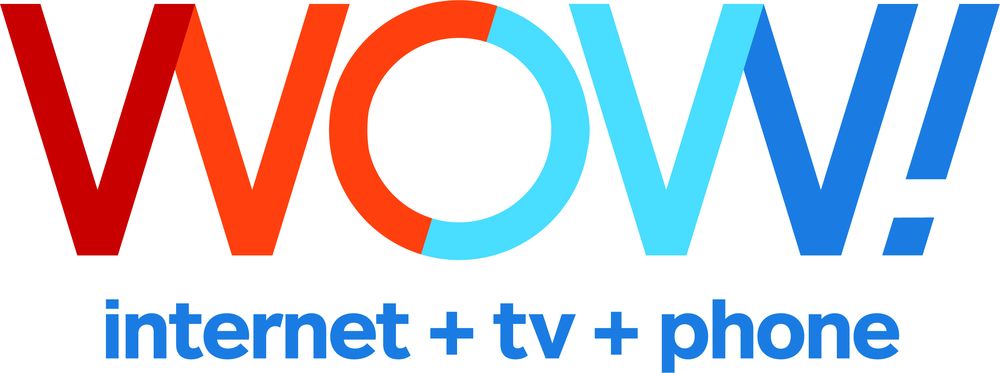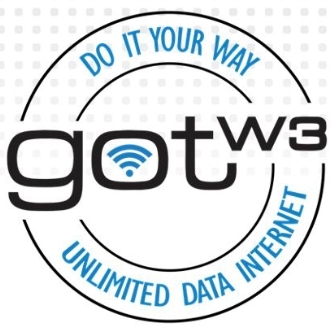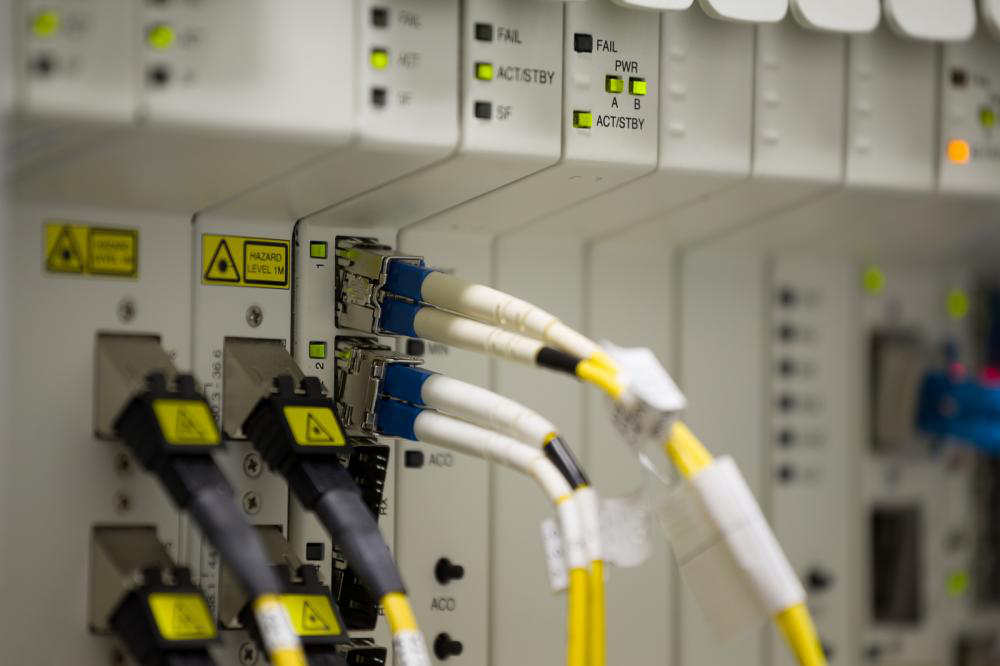Explore the WOW Internet service with Konecteaze.com. Discover affordable plans, speeds up to 1,000 Mbps, and the benefits of high speed internet for new home owners. Stay connected with WOW
22 October, 2024 | Posted by: Pablo Mendoza
Category: Cable, Deals & Packages, Reviews, Service Providers | No Comments

In the digital age, a reliable internet connection is more than a luxury—it's a necessity. If you're on the hunt for a cost-effective, dependable home internet solution, WOW! Internet might be the right choice for you.
| Plan Name | Price/Month | Download Speed | Upload Speed |
|---|---|---|---|
| WOW! Internet 50 | $9.99 | Up to 50 Mbps | Up to 5 Mbps |
| WOW! Internet 100 | $19.99 | Up to 100 Mbps | - |
| WOW! Internet 200 | $29.99 | Up to 200 Mbps | Up to 10 Mbps |
| WOW! Internet 500 | $44.99 | Up to 500 Mbps | Up to 50 Mbps |
| WOW! Internet 1 Gig | $64.99 | Up to 1,000 Mbps | Up to 50 Mbps |
Note: Availability and pricing may vary based on location. Always check the official WOW! website or contact their customer support for the most up-to-date information.
WOW! Internet offers a blend of affordability, speed, and reliability, making it a solid choice for many households. The no data caps feature is especially beneficial for gamers and streamers. Whether you need a basic plan for browsing or a high-speed connection for gaming and streaming, WOW! has a plan to fit your needs.
gotW3 is a mobile hotspot company that covers 95% of the country and offers surprisingly fast internet speeds over 4G LTE cell phone towers.
25 October, 2024 | Posted by:
Category: Deals & Packages, Reviews, Service Providers | No Comments

gotW3 is a mobile hotspot company that offers internet coverage across 95% of the United States, utilizing 4G LTE cell phone towers. This service is particularly beneficial for individuals in rural areas or those frequently on the move, such as RV travelers.
gotW3 offers plans based on your location, categorized into "Urban America" and "Rural America." The cost of the service is determined by the price you pay for the equipment upfront.
You can order gotW3 through their website or by contacting a service agent who will help determine the best plan based on your location. The service requires an upfront payment for the first month and equipment, with automatic billing thereafter.
gotW3 is an excellent option for those in rural areas or frequently on the move, offering fast speeds and unlimited data without long-term commitments. However, the high upfront and monthly costs may be a consideration for some users. The 14-day money-back guarantee provides a cushion for those wanting to test the service.
Last December, the number of global internet users reached 4.1 billion, showing that it has become a necessity in every household. The internet plays an extremely critical role in our modern lives.
24 October, 2024 | Posted by:
Category: Service Providers | No Comments

The internet is integral to our daily lives, supporting activities from social media interactions to critical business tasks. A reliable internet connection is essential, and if your current Internet Service Provider (ISP) isn't meeting your needs, it might be time to consider switching. Here are the key signs and considerations for changing your ISP.
If your ISP fails to promptly address service disruptions or issues, it may be time to look for a provider with better customer support. Reliable customer service ensures quick resolution of problems, minimizing downtime.
Many ISPs start with low introductory rates that increase over time. If your internet costs have become too high, consider exploring more affordable options with competitive deals.
Frequent disconnections and slow speeds can be frustrating and indicate an unreliable ISP. Consistent, high-speed internet is essential, especially for streaming, gaming, and remote work.
Some ISPs throttle bandwidth, slowing down your connection during peak usage times or after exceeding a data limit. If you notice significant speed drops, it might be due to throttling.
ISPs that are not transparent about their fees, terms of service, or data usage policies can cause frustration. Look for providers that are clear and upfront about their policies.
Consistently negative reviews regarding customer service, reliability, and billing practices are red flags. Research customer feedback to gauge the overall satisfaction with the ISP.
Some ISPs may not offer the latest technology, such as fiber-optic connections, which provide faster and more reliable service. Switching to a provider with modern infrastructure can improve your internet experience.
If your ISP offers limited plan options that don't match your usage needs, consider a provider with a wider range of plans. Tailored plans can better suit your requirements, from basic browsing to heavy streaming and gaming.
Assess your internet usage requirements, including the number of devices, streaming habits, and any specific needs like online gaming or remote work. This helps in selecting a suitable plan.
Research and compare different ISPs in your area. Look at their plans, speeds, customer reviews, and overall reputation. Websites like BroadbandNow and HighSpeedInternet.com can help you compare.
Be aware of potential hidden fees such as installation charges, equipment rental, or early termination fees. Read the fine print and understand all costs involved.
Evaluate the quality of customer support from potential ISPs. Reliable customer service is crucial for quickly resolving any issues that arise.
Be mindful of contract terms and conditions. Some ISPs require long-term contracts with early termination fees, while others offer more flexible month-to-month plans.
Check if there are any fees associated with canceling your current service. Some ISPs may have early termination fees, especially if you are in the middle of a contract.
Do not cancel your existing service until your new one is installed and operational. This ensures you won't be without internet during the transition period.
Look for special offers or promotions from new ISPs. Many providers offer introductory rates, free installation, or bundled packages that can save you money.
Once you switch, monitor the performance of your new ISP. Ensure that it meets your speed, reliability, and customer service expectations.
If you experience slow response times, high costs, or unreliable service from your ISP, it may be time to switch. Look for a provider that offers affordable, reliable, and high-speed internet. By understanding your needs and carefully evaluating potential ISPs, you can find a service that better suits your requirements.
As one of the leading cellular and internet networks in the country, AT&T understands America like no other. The internet service provider ensures customer satisfaction with incomparable deals on television, internet, and wireless connections, so you can always stay connected!
15 November, 2024 | Posted by:
Category: Service Providers | No Comments

AT&T offers a variety of deals across its television, internet, and wireless services, designed to provide value for both new and existing customers. Here’s a comprehensive look at the best current offers and promotions available from AT&T.
Entertainment Package: $64.99/month. Includes over 65 channels, including ESPN and FX.
Choice Package: $69.99/month. Offers over 90 channels plus regional sports networks.
Ultimate Package: $84.99/month. Features over 130 channels, including additional sports and movie channels.
Premier Package: $139.99/month. Provides over 140 channels, including HBO Max, SHOWTIME, STARZ, and Cinemax.
Add-ons: HBO Max included for one year with the Choice and Ultimate packages. STARZ, Cinemax, and SHOWTIME can be added for an additional monthly fee.
Internet 300: $55/month. Offers speeds up to 300 Mbps. New subscribers receive a $50 Visa Reward Card.
Internet 500: $65/month. Provides speeds up to 500 Mbps. Includes a $100 Visa Reward Card for new subscribers.
Internet 1 Gig: $80/month. Delivers speeds up to 1,000 Mbps. Comes with a $150 Visa Reward Card.
Internet 2 Gig: $145/month. Offers speeds up to 2,000 Mbps.
Internet 5 Gig: $245/month. Provides speeds up to 5,000 Mbps.
Additional Offers:
Bundling Discount: Save $20/month on internet when bundled with eligible AT&T wireless plans.
No Installation Fees: Free installation for new subscribers.
Equipment Included: Modem and Wi-Fi router included at no extra cost.
Samsung Galaxy: Up to $1,000 off on select models with an eligible trade-in.
iPhone Deals: Buy one, get one free on iPhone XR, XS, or XS Max with the addition of a new line.
Refurbished Smartphones: 20% off certified restored smartphones for prepaid customers.
AT&T Unlimited Elite Plan: $85/month per line. Includes HBO Max, 30 GB of mobile hotspot data, and unlimited talk, text, and data.
AT&T Unlimited Extra Plan: $75/month per line. Offers 15 GB of mobile hotspot data and unlimited talk, text, and data.
AT&T Unlimited Starter Plan: $65/month per line. Provides unlimited talk, text, and data.
| Service | Plan/Deal | Details | Price |
|---|---|---|---|
| Television | Entertainment Package | Over 65 channels, including ESPN and FX | $64.99/month |
| Television | Choice Package | Over 90 channels, regional sports networks | $69.99/month |
| Television | Ultimate Package | Over 130 channels, additional sports and movie channels | $84.99/month |
| Television | Premier Package | Over 140 channels, includes HBO Max, SHOWTIME, STARZ, Cinemax | $139.99/month |
| Internet | Internet 300 | 300 Mbps, $50 Visa Reward Card | $55/month |
| Internet | Internet 500 | 500 Mbps, $100 Visa Reward Card | $65/month |
| Internet | Internet 1 Gig | 1,000 Mbps, $150 Visa Reward Card | $80/month |
| Internet | Internet 2 Gig | 2,000 Mbps | $145/month |
| Internet | Internet 5 Gig | 5,000 Mbps | $245/month |
| Wireless | Samsung Galaxy | Up to $1,000 off with eligible trade-in | Varies |
| Wireless | iPhone XR, XS, XS Max | Buy one, get one free | Varies |
| Wireless | Refurbished Smartphones | 20% off for prepaid customers | Varies |
| Wireless | Unlimited Elite Plan | Includes HBO Max, 30 GB mobile hotspot data, unlimited talk, text, data | $85/month |
| Wireless | Unlimited Extra Plan | 15 GB mobile hotspot data, unlimited talk, text, data | $75/month |
| Wireless | Unlimited Starter Plan | Unlimited talk, text, data | $65/month |
| Bundle | Internet + Wireless | 20% off monthly internet bill when bundled with wireless | Varies |
AT&T provides a wide range of deals across its television, internet, and wireless services. Whether you're looking for high-speed internet, comprehensive TV packages, or discounts on the latest smartphones, AT&T has offers that can help you save. Check out their website or contact customer service for the most current deals tailored to your needs.
Li-Fi stands for light fidelity and is a new advancement in the world of INTERNET. Almost all the homes these days have broadband connections and everyone has experienced low-speed Wi-Fi.
22 October, 2024 | Posted by:
Category: Deals & Packages, Internet, Service Providers, Technology | No Comments

As we continue to rely on the internet for almost every aspect of our lives, new technologies like Li-Fi are emerging, promising faster and more secure wireless communication. But are we ready to replace our beloved Wi-Fi with this new technology? Let's dive into the details of what Li-Fi is, its advantages, limitations, and whether it can realistically replace Wi-Fi.
Li-Fi, or Light Fidelity, is a wireless communication technology that uses light to transmit data. It leverages the visible light spectrum, specifically LED lights, to send information at incredibly high speeds. This is achieved by modulating the light signals emitted by LEDs, which are then received by photodetectors and converted back into data.
Li-Fi can theoretically achieve speeds up to 224 Gbps, significantly faster than traditional Wi-Fi. This speed is due to the larger bandwidth available in the visible light spectrum compared to the radio frequencies used by Wi-Fi.
Since light cannot penetrate through walls, Li-Fi offers a more secure connection, making it difficult for unauthorized users to access the network without being in the same room.
Li-Fi does not interfere with radio frequency signals, making it ideal for environments like hospitals and airplanes where RF interference can be problematic.
LED lights are already energy-efficient, and using them for data transmission adds another layer of efficiency, potentially reducing overall power consumption.
Li-Fi requires a direct line of sight between the transmitter (light source) and the receiver (photodetector). This means it can't work through walls, making it less practical for entire home or office coverage.
The range of Li-Fi is limited to the area illuminated by the light source. Moving out of the light’s reach means losing the connection.
Since Li-Fi relies on visible light, it cannot function in complete darkness. This can be a significant limitation for nighttime use or in areas where lighting needs to be minimized.
Implementing Li-Fi requires significant changes in infrastructure, such as installing LED light sources and compatible photodetectors, which can be costly and time-consuming.
Given the advantages and limitations, Li-Fi is not currently positioned to replace Wi-Fi entirely. Instead, it can serve as a complementary technology. For instance, Li-Fi can be used in high-security environments, for data-heavy applications requiring high-speed transfer, or in places where RF interference is a concern. Wi-Fi, on the other hand, will continue to provide broader coverage and mobility.
Li-Fi presents an exciting advancement in wireless communication technology with its high-speed and secure data transmission capabilities. However, due to its limitations, it is not yet ready to replace Wi-Fi. Instead, the two technologies can coexist, each serving different purposes and complementing each other’s strengths and weaknesses. As technology evolves, we may see more integrated solutions that leverage the best of both worlds.